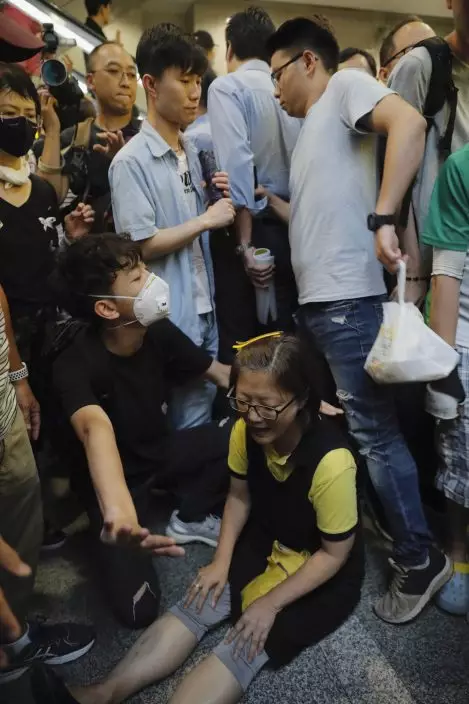China promised that for 50 years after Britain gave up control of its last colony in 1997, this shimmering financial enclave would get to keep freedoms absent in the communist-ruled mainland that many here don't want to live without.
The hundreds of thousands who marched in a June 16 protest over a now-shelved extradition bill, and those still demonstrating, are signaling alarm their hometown may become just another Chinese city as those protections unravel and Beijing's influence expands.
Activists plan more protests for Wednesday, hoping to win attention and support from world leaders gathering in Osaka, Japan, for the Group of 20 summit later this week.

A protester sits down to block visitors in the lobby of the Hong Kong Revenue Tower in Hong Kong on Monday, June 24, 2019. Hong Kong has been rocked by major protests for the past two weeks over legislative proposals that many view as eroding the territory's judicial independence and, more broadly, as a sign of Chinese government efforts to chip away at the city's freedoms. (AP PhotoKin Cheung)
Most Hong Kong residents belong to families that fled the communist mainland. They want to keep the freedoms inherited from British rule.


